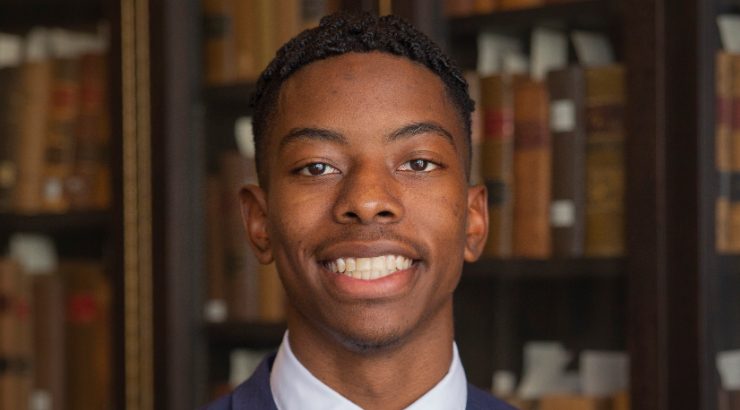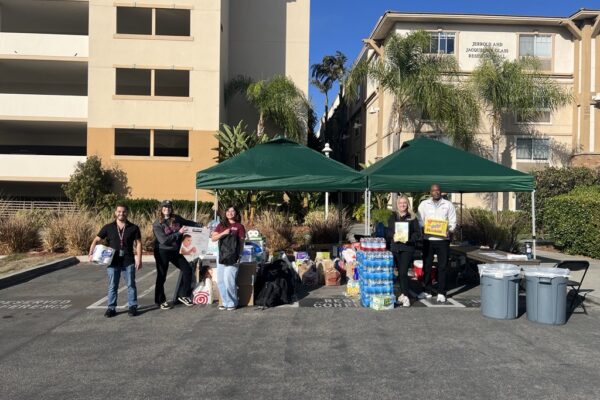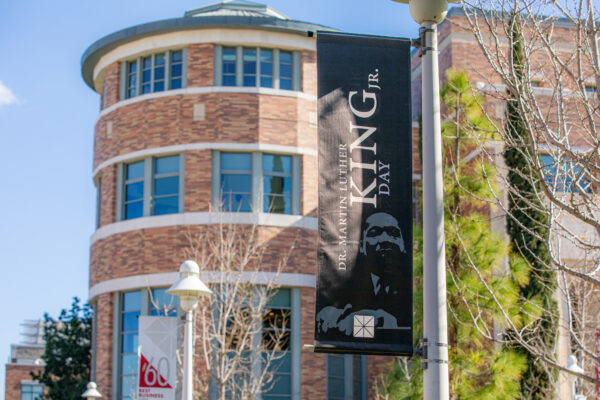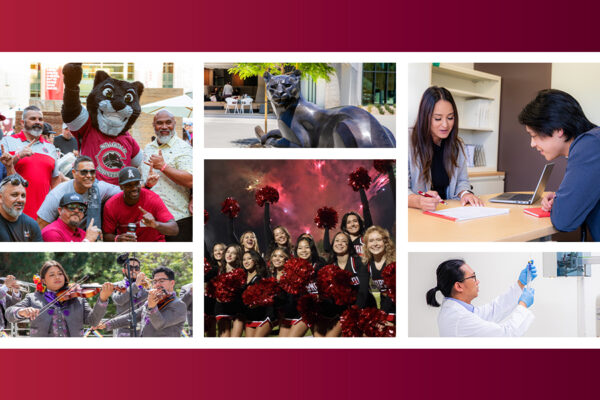“Be limitless.” That’s the motto Thomas Hatton Jr. ’22 lives by, and the philosophy that has helped him find success despite the challenges of his childhood. Now a full-time MBA student at Chapman University’s Argyros School of Business and Economics, Hatton recently attended the National Black MBA Association career fair, an experience that he knows will be valuable to achieving his future goals. We spoke to him about those goals, his takeaways from the career fair and his journey to Chapman.
How did you prepare yourself for the challenges of earning an MBA?
I was born and raised in a single parent household in Dallas, Texas, and I was born with sickle cell anemia. It’s a rare blood disorder in which there aren’t enough healthy red blood cells to carry oxygen throughout my body. Growing up, I loved sports; football meant everything to me. And growing up in poverty, my dream was to go to the NFL. I told my mom she would never have to work again once I made it to the NFL. So I focused and dedicated my entire grind towards my craft in football. But I had sickle cell, so it was hard for me to stay on the field. I was in and out of hospitals throughout grade school and a lot of times I had to leave my hospital bed in the morning just to make it to class on time. It was very hard to function in school, let alone play football.
In my junior year of high school, I had a really bad sickle cell crisis that caused me to go to the hospital, and a doctor basically said, “Your condition is just too severe to continue playing football.” After that, I stopped for good.
I took that competitive energy, that competitive spirit, and pushed it towards academics, and I really got involved in my community. I ended up getting a full ride to Texas Christian University as a community scholar. While I was there, I was able to help out different communities and tell my story. I did a lot of work with a program for boys without fathers in their lives, mentoring them and advocating for them. I was also able to travel the world. I traveled to 10 countries while I was at TCU. It was something unheard of for somebody who has sickle cell, but to break boundaries and do things that was just eye-opening and inspirational. I became a trailblazer for a lot of people around me and was able to show them, “Look, if I can do it, you can do it, too.”
What are your career goals following your MBA?
I want to go into consulting in the data analytic market, either working for a consulting firm or working for a professional sports team. I believe that data is more relevant than ever because of COVID-19. I want to use data to innovate plans for businesses, revive companies, and help them grow and come out of this pandemic.
I’m also interested in starting my own business in sports and entertainment. I want to be someone who represents athletes, artists, actors, like what Jay Z does for Roc Nation. I want to help them build their brand and teach them how to invest their money.
I also want to enter the tax industry. Coming from a place where generational wealth is virtually nonexistent, I feel compelled to help change that. To be in a position to learn more and make a difference. I plan to partner with a need-based business called Jumping Jack Tax and teach low income households a recession proof skillset such as preparing taxes.
What was the National Black MBA career fair like for you?
It was a very, very unique experience. I think it was the first time they did it virtually. There were a lot of chat rooms, one for each company. I saw a lot of students typing out their elevator pitches and trying to connect with employers anyway they could. There were several ways to learn about all of companies in attendance including through workshops, seminars, and by simply joining their talent communities. It was very overwhelming at first, but as time went by, you kind of learn how to navigate. It was a competitive environment. The career fair was one of those situations where you just have to be dedicated and competent and ready to go.
How did the career team at Chapman help prepare you for this experience?
They helped me with my resume. They sent me tools and templates to tailor my resume towards the positions that I wanted. They also helped me come up with an elevator pitch. I think that’s so important — being able to tell your story in a few sentences that will get employers interested in you and the value you can offer them. Overall, they preached to us to just take initiative and be open.
They can give us all the tools, they can teach us all these things, but it’s going to be up to us to put ourselves out there and apply ourselves. I think taking initiative is something that they kind of instilled in us.
What is the value of this kind of specialized environment for Black MBA students?
Personally, I think there is value in seeing other professionals already in the positions that you’re interested in, and knowing that you can reach exceptional heights within companies you know. Being able to connect with people in positions of influence and power does something for Black MBA students. Black students can learn from those already in positions of authority, learning from the trial and error that the people before them have been through.
A lot of companies don’t have much diversity, so knowing how to trailblaze and innovate an entire new work force with different types of people from different backgrounds is something that’s new for a lot of companies. I think it’s an interesting time and the MBA conferences are a place where you can learn how to break into those industries. The networking and mentorship opportunities in these conferences is something that’s vital for the success of Black MBA students going forward.
Learn More
Learn more about Argyros School’s Full-Time MBA program.




